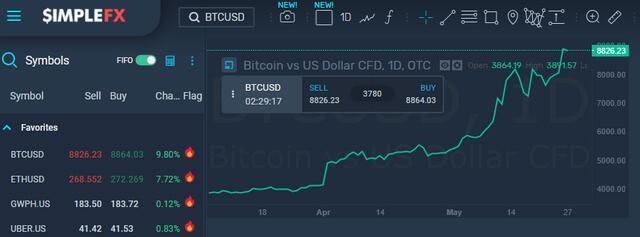
Small-cap investing focuses on companies that have smaller market caps than most stocks. Since these companies are worth less than large-cap or mid-cap stocks, they tend to be more volatile and carry more risks, but they also offer greater potential reward. Read on to learn the pros and cons of small-cap stock investing, why you should consider small-cap stocks, and whether they’re right for you.
- These companies tend to be more volatile, and in most cases, are reasonably priced.
- In fact, the number of such companies is significantly higher than large and mega cap stocks combined.
- Investing in ACM Research provides exposure to a high-growth industry without exposure to the risk of commodity chip prices declining.
- Consequently any person acting on it does so entirely at their own risk.
- They also tend to have higher risks than large companies that have sustainable free cash flows and revenue.
Large-cap stocks have a market valuation of between $10 billion and $100 billion. Small-cap companies are just like other large-cap companies, with the only difference being their small sizes. At times, large-cap companies can move back to small-cap firms based on the performance of their stocks. In this article, we will look at what small-cap stocks are and how to day trade them well. Many traders make the mistake of buying oversold stocks or selling overbought stocks and suffer financial losses as a result.
Top Small-Cap Stocks to Buy
This is particularly true of investors who may need to withdraw their investment on a shorter time horizon, such as older investors who need to supplement their retirements. It is essential to make the distinction between small caps and penny stocks, which are a whole different ballgame. It is possible for a stock to be a small-cap and not a penny stock. In fact, there are plenty of small caps trading at far more than $1 per share.
Compared to larger stocks, small-cap investing offers greater risks but also increased return potential. Therefore, investors should ask themselves what their risk tolerance and time horizon are. Younger investors who plan to hold stocks for decades are generally better suited for small-cap investing than retirees living off dividend income. It is this risk of greater losses and more volatile returns that keeps many investors away from small-cap stocks.
Why Is Market Capitalization Important?
Over time, small-cap stock prices tend to be more volatile than those of larger companies, and stock values fluctuate more dramatically. But, in general, the longer the evaluation period, the greater the likelihood that small-cap stocks outperform the large-caps. Merger and acquisition activity provides another opportunity for small-cap investors. Small caps are acquired more frequently than larger companies.

Additionally, ACM is a U.S. company that conducts most of its business in China, giving investors a relatively safe investing method for gaining exposure to the Chinese market. ACM is one of the rare small-cap companies that offers both high growth potential and solid profitability. The risks of loss from investing in CFDs can be substantial and the value of your investments may fluctuate. 72% of retail client accounts lose money when trading CFDs, with this investment provider.
What Are Small-Cap Stocks?
Fund managers may craft an investment strategy to focus on particular segments of stocks based on their market cap. And in the business world, companies could look for possible acquisition opportunities within small-cap competitors. Small cap stocks offer high volatility and lots of growth potential compared to large cap stocks.
- Get stock recommendations, portfolio guidance, and more from The Motley Fool’s premium services.
- If you can take on additional levels of risk, exploring the small-cap universe might be for you.
- Scalping is an approach where traders buy and sell stocks within a short period.
- Defining your intention ahead of time is key to finding small cap stocks that are right for you.
Owning small-cap stocks can boost your portfolio’s overall growth rate — provided you commit to a buy-and-hold investing strategy. As the chart shows, in recent months small-cap stocks have fallen sharply amid a broader pullback on fears of a Federal Reserve Board rate hike, especially in high-priced growth stocks. In other words, small-caps tend to underperform during bear markets but outperform in bull markets. Since many small-cap stocks have little to no earnings or limited cash on their balance sheets, more of them file for bankruptcy than their larger peers.
Join Over Half a Million Premium Members Receiving…
Trading intraday patterns will require different search criteria than swing trading small cap stocks over several days or weeks. Ad tech stocks have boomed during the pandemic alongside broader gains in digital advertising and connected TV. One big winner has been Perion Network (PERI 2.29%), an Israeli company that focuses on connecting advertisers and publishers through its intelligent hub. That gives it a unique offering in an industry where companies typically cater to brands or publishers. The e-commerce company also looks primed for continued growth due to a semiconductor shortage in auto manufacturing that is boosting new and used car prices.
How to trade small-cap stocks with us
As such, you can easily trade companies whose share price is at $50 compared to many large ones that have a smaller market cap. There are even bigger differences between small- and large-cap stocks. Not only are small-caps a fraction of the size of large-caps (which have market caps in excess of $10 billion), but the business and investing prospects are also quite different. The Russell 2000’s higher average return might seem to suggest that investing in small-cap stocks is a sure-fire route to greater investment returns. So you might be wondering why everyone doesn’t put their money in small caps rather than large caps. The Securities and Exchange Commission (SEC) places heavy regulations on mutual funds that make it difficult for the funds to establish positions of this size.
How to Find Small Cap Stocks
Therefore, while penny stocks are small-cap stocks, not all small-caps are penny stocks. A common question is whether there is a difference between small-caps and penny stocks. Penny stocks are small companies that have a tiny market cap. Next, add additional parameters that make sense for your setup. You might add a percent change filter, for example, to find only small caps that are experiencing big price movements today. Or you can use a relative volume screen to find small caps that are seeing a lot of interest from traders.



